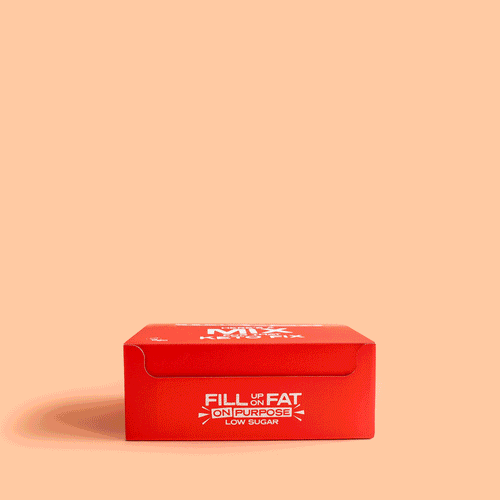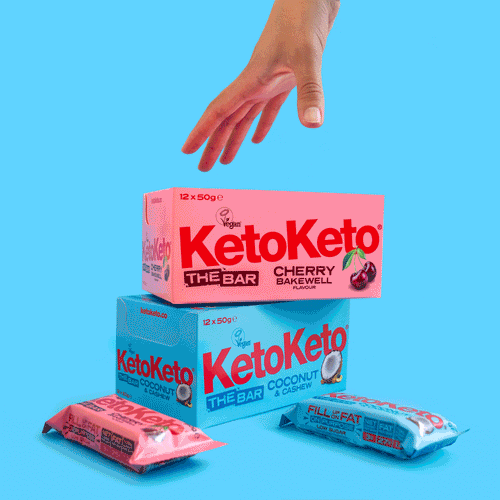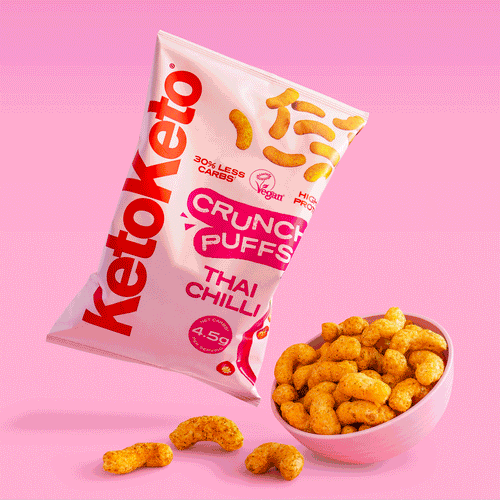We’re guessing you’re here because you care about your health. You're prepared to take action and do what it takes to live a happy, active and fulfilling life. Health issues have a unique way of reminding us that we need to take care of ourselves. One of the most common health problems in the UK are digestive disorders. According to Dr. Anton Emmanuel, Consultant Gastroenterologist, around 40% of the UK population suffer from a digestive complaint at any one time.
Perhaps digestive issues have brought you here - you’re looking for answers to improve your chronic ill-health and you want to learn how to take care of your body long-term. We’re glad you’ve found us.
What Is The Keto Diet?
The Ketogenic diet has grown in popularity in recent years thanks to its health benefits. It’s actually not a new way of eating; we’ve just mostly forgotten how to eat well and tend to nibble what’s convenient - without stopping to consider whether what we’re consuming is actually good for us.
Keto is all about the good fats and healthy proteins, 80% and 15-20% respectively. Carbohydrates are mostly eliminated, save for a tiny amount of nutritious high-fibre carbs.
Removing most carbohydrates puts your body into ketosis, which basically means you’ll be producing ketones from fat, rather than glucose from carbs for energy.
Keto is about rediscovering the foods that nurture our bodies; thinking about the food we put into our mouths, and the effect they have on our internal systems. Healthy fats in the form of meat, fish, eggs, nuts and oils are vital for regeneration and repair. Proteins play a critical role in building tissues and maintaining balance. Too many carbohydrates on the other hand can cause issues with leaky gut.
Studies have found living on Keto foods can correct gut imbalance and a low-carb diet can improve symptoms of Irritable Bowel Syndrome (IBS).
Common Digestive Issues
According to other research, Gastrointestinal Disease is the third most common cause of death, the leading cause of cancer, and the most common cause of hospital admission in the UK. Not only are these very somber statistics, but the reality of them is monumental in the lives of the individuals they affect.
Under the umbrella term of Gastrointestinal Disease are conditions such as: Irritable Bowel Syndrome (IBS), Dysbiosis, Small Intestinal Bacterial Overgrowth (SIBO), Celiac Disease, Crohn's Disease, Gastroesophageal Reflux Disease (GERD) and Lactose Intolerance. These are serious conditions that have a severe impact on those who suffer with them.
Other frequent digestive problems such as constipation, bloating, flatulence and diarrhea also significantly disrupt the lives and overall health of those unfortunate enough to experience them. Digestive problems are a signal to us that our bodies are out of balance. The gut microbiome plays a significant role in our overall health, and when it malfunctions, even in a seemingly small way, we should take note.
One of the easiest ways to turn our health around is to change the food we eat.
The Best Foods To Aid Digestion
There are a few key elements you should include in your daily meals to ensure your gut is in tip-top condition:
Healthy Fats
Nutritious fats such as avocado, fish, nuts and MCT oil are vital for good health. They provide energy, protect organs, aid cell reproduction and assist the absorption of important vitamins.
Easy Digestion: Medium-chain triglycerides (MCTs) such as those found in MCT oil, are more easily digested than other fats; they’re sent straight to your liver, bypassing normal fat digestion processes. Your body doesn’t have to work hard to process these types of fat and will feel much happier for it; relaxed and undamaged.

100% Coconut MCT Oil
100% Coconuts and free from palm oil! (500ml)
MCT oil is a MUST for anyone following the Keto lifestyle. Super rich in medium chain triglyceride (MCTs), our MCT oil will help boost your ketone levels and increase your fat burning state.
Enforce Boundaries: Healthy fats strengthen your intestinal walls and create a secure barrier. A strong and intact gut boundary keeps the good stuff in and the bad bits out. This is critical to keep out harmful pathogens that might otherwise invade your GI tract; cause illness, injury and kill helpful microbiota.
Curb Cravings: Chewing your way through an abundant amount of good fats keeps you satisfied. Cravings will reduce and you’ll give your digestive system a much-needed rest. Continuously snacking on carbs to relieve hunger never allows your digestive organs to relax or hydrochloric acid to restore - needed for easy and comfortable digestion.
Protein
The tissue layers that make up your digestive organs are mostly made of protein. When you eat enough protein, your intestines can heal, renew and absorb vital nutrients.
Encourage Enzymes: Digestive enzymes must flourish for good digestion. When you include moderate amounts of protein in your meals it’ll boost enzyme production and prevent poor digestion.
- Support Systems: The presence of protein in your diet safeguards every system, not just your digestive one. Every enzyme in your body is composed of protein, without a sufficient amount of this important macronutrient, your body will operate in survival mode. Intelligently, your body will conserve nutrients for your most fundamental organs and muscles; your heart, brain and diaphragm. While your nervous and digestive systems will be less prioritised; happy neurotransmitter production and digestive repair cycles will be impaired.
- Heal Injury: Specific types of proteins known as amino acids, repair your gut lining if it’s damaged. One particular amino acid, L-glutamine, is especially important for rejuvenating your intestinal walls. L-glutamine is found in both plant and animal proteins, but more so in animal sources.
Fibre
It’s pretty well known that fibrous foods help tummy troubles, but what specifically is it about fibre that keeps your colon content?
- Keep It Moving: Fibre is a type of complex carb, primarily found in plants, that your digestive enzymes cannot fully break down. It’s presence in your gastrointestinal tract will increase stool bulk, which in turn stimulates the walls of your colon - leading to more frequent bowel movements.
- Feed Friendly Bacteria: Your gut is host to trillions of microbes, some of them friendly, which we want to stick around. The beneficial bacteria help to break down fibre, and in so doing, produce metabolites (by-products of the metabolic process) that keep your intestinal wall healthy. The more fibre you munch, the more abundant your good gut bacteria will be. Seems like a pretty good deal.

KetoKeto Bars
Our bars are made with carefully selected ingredients, such as almonds and coconut oils to ensure you get the right balance of healthy fats and protein for your digestion. Low in net carbs and developed to have minimal impact on blood sugar levels, over 10,000 people in the UK trust them as their go to keto snack.
How Keto Improves Digestion
The keto diet promotes dining on a top-quality, high-fat, moderate-protein diet. These macronutrients are key to healthy digestion. They allow your GI tract to work efficiently because these foods protect, repair and maintain balance within the digestive system. Friendly bacteria flourish, injuries heal, and pathogens are blocked. While the elimination of most carbohydrates starves bad bacteria and harmful microbes.
A well-balanced Keto diet can not only prevent gastrointestinal disease and illness, but heal damage caused by prior injury; serving as a way to protect your digestive system for long-term optimum health.







